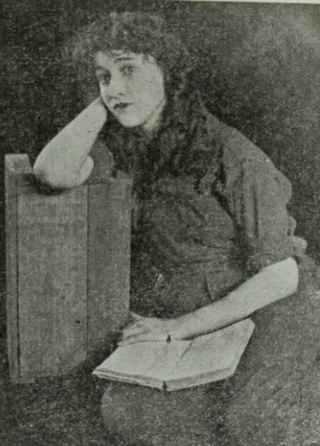Poverty Row is a slang term used to refer to Hollywood films produced from the 1920s to the 1950s by small B movie studios. Although many of them were based on today's Gower Street in Hollywood, the term did not necessarily refer to any specific physical location, but was rather a figurative catch-all for low-budget films produced by these lower-tier studios.
Reliable Pictures was an American film production and distribution company which operated from 1933 until 1937. Established by Harry S. Webb and Bernard B. Ray, it was a low-budget Poverty Row outfit that primarily specialized in Westerns. After its demise, the company's studios were taken over by Monogram Pictures.

Sono Art-World Wide Pictures was an American film distribution and production company in operation from 1927 to 1933. Their first feature film was The Rainbow Man (1929), while one of their most prominent was The Great Gabbo (1929) starring Erich von Stroheim and directed by James Cruze for James Cruze Productions, Inc. One of the last films distributed by the company was A Study in Scarlet (1933) starring Reginald Owen as Sherlock Holmes.
Lawrence J. Darmour (1895–1942) was an American film producer, operator of Larry Darmour Productions from 1927, and a significant figure in Hollywood's low-budget production community.
Albert Herman (1887–1958) was an American actor, screenwriter and film director. Herman was a prolific director, working mainly on low-budget movies for companies such as Producers Releasing Corporation. He is sometimes credited as Al Herman.
George R. Batcheller (1892–1938) was an American film producer. He ran the low-budget studio Chesterfield Pictures in the 1930s.
M. A. Anderson was an American cinematographer. He worked for the Poverty Row studio Chesterfield Pictures during the 1930s.
Roland D. Reed was an American film editor, producer and director. He worked on many films for the low-budget Chesterfield Pictures and later started Roland Reed Productions, Inc. that shut down in November 1956. In addition to TV series, Reed made industrial and Christian films as well as television commercials that were filmed at Hal Roach Studios.
Tremlet C. Carr was an American film producer, closely associated with the low-budget filmmaking of Poverty Row. In 1931 he co-founded Monogram Pictures, which developed into one of the leading specialist producers of B pictures in Hollywood.
Allied Pictures was an American film production company that operated between 1931 and 1934. Controlled by the producer M.H. Hoffman, it was one of the Poverty Row companies of the era turning out low-budget B pictures. The company's best known film is A Shriek in the Night, a thriller from 1933 starring Ginger Rogers.
Liberty Pictures was an American film production company of the 1930s. Part of Poverty Row, the company produced low-budget B pictures. It was one of two companies controlled by the producer M.H. Hoffman along with Allied Pictures.
M. H. Hoffman was an American studio owner and film producer. In the 1920s and 30s, Hoffman made films for seven different studios. He is particularly associated with Poverty Row where studios he founded -Allied Pictures, Liberty Pictures and Tiffany Pictures produced mainly low-budget B pictures.

W. Ray Johnston was an American film producer. He was associated with low-budget filmmaking, in particular with the larger Poverty Row studios Rayart Pictures and Monogram Pictures. Before founding Rayart in 1924, he also acted in a handful of films.
Mayfair Pictures was an American film production and distribution company active between 1931 and 1934 during the early sound era. It grew out of Action Pictures, another low-budget studio location on Poverty Row. It was established by the producer Ralph M. Like and was located at the former Charles Ray Studios in Hollywood.
Ralph M. Like (1894–1955) was an American film producer. He was involved with several independent film companies producing low-budget releases on Poverty Row. In 1932 he established Mayfair Pictures. Other companies he was involved with were Action Pictures and Progressive Pictures. After his studios folded in 1934, he produced only one further film You Can't Beat the Law for Monogram in 1943. Like also worked as a sound engineer at some of the major studios.

Fanchon Royer (1902–1986) was an American film producer, active during the 1930s. She was one of the few woman producers in Hollywood during the era, associated with low-budget independent studios such as Mayfair Pictures.
Dwight Caldwell (1902–1981) was an American film editor. He worked on more than a hundred productions, including several serials, mainly at Majestic Pictures and Columbia Pictures.
Phil Goldstone (1893–1963) was a Polish-born American film producer and director. He was also a real estate developer in Palm Springs. Goldstone was involved with low-budget Poverty Row companies such as Majestic Pictures.
Fred Bain (1895–1965) was an American film editor. A prolific worker, he edited over a hundred and seventy films, mainly westerns and action films, and also directed three. He worked at a variety of low-budget studios including Reliable Pictures, Grand National and Monogram Pictures. He was sometimes credited as Frederick Bain.
James Diamond (1894–1936) was an American cinematographer active during the silent and early sound eras. Much of his work during the 1930s was for lower-budget Poverty Row companies.


